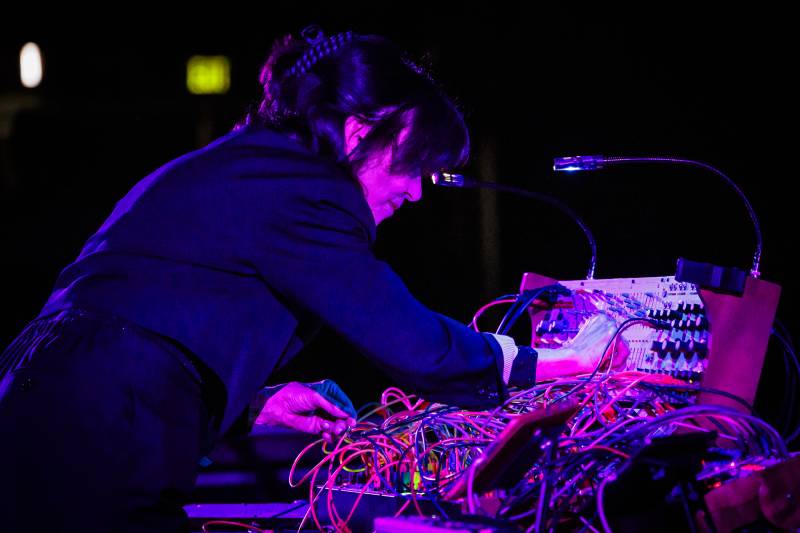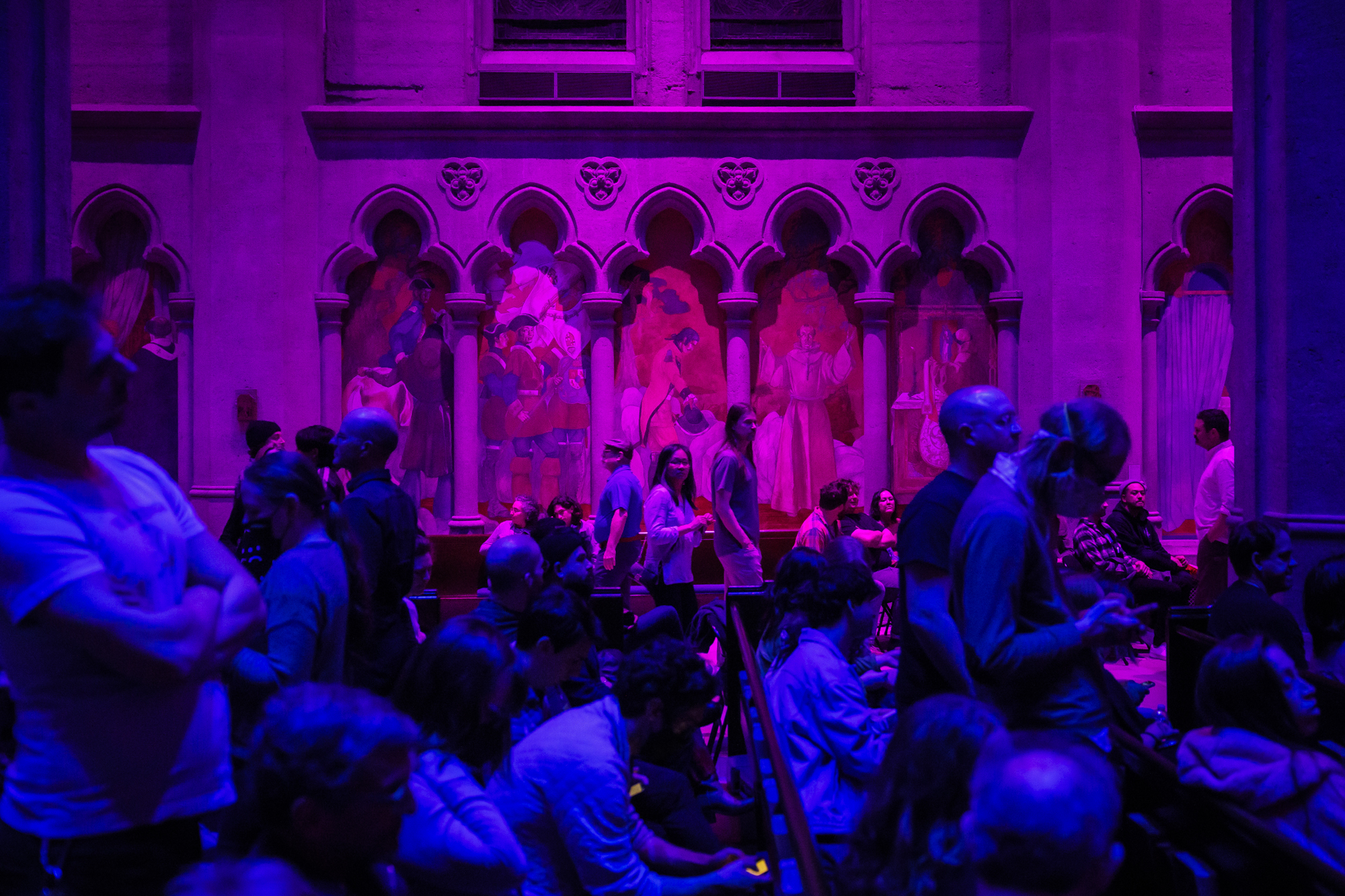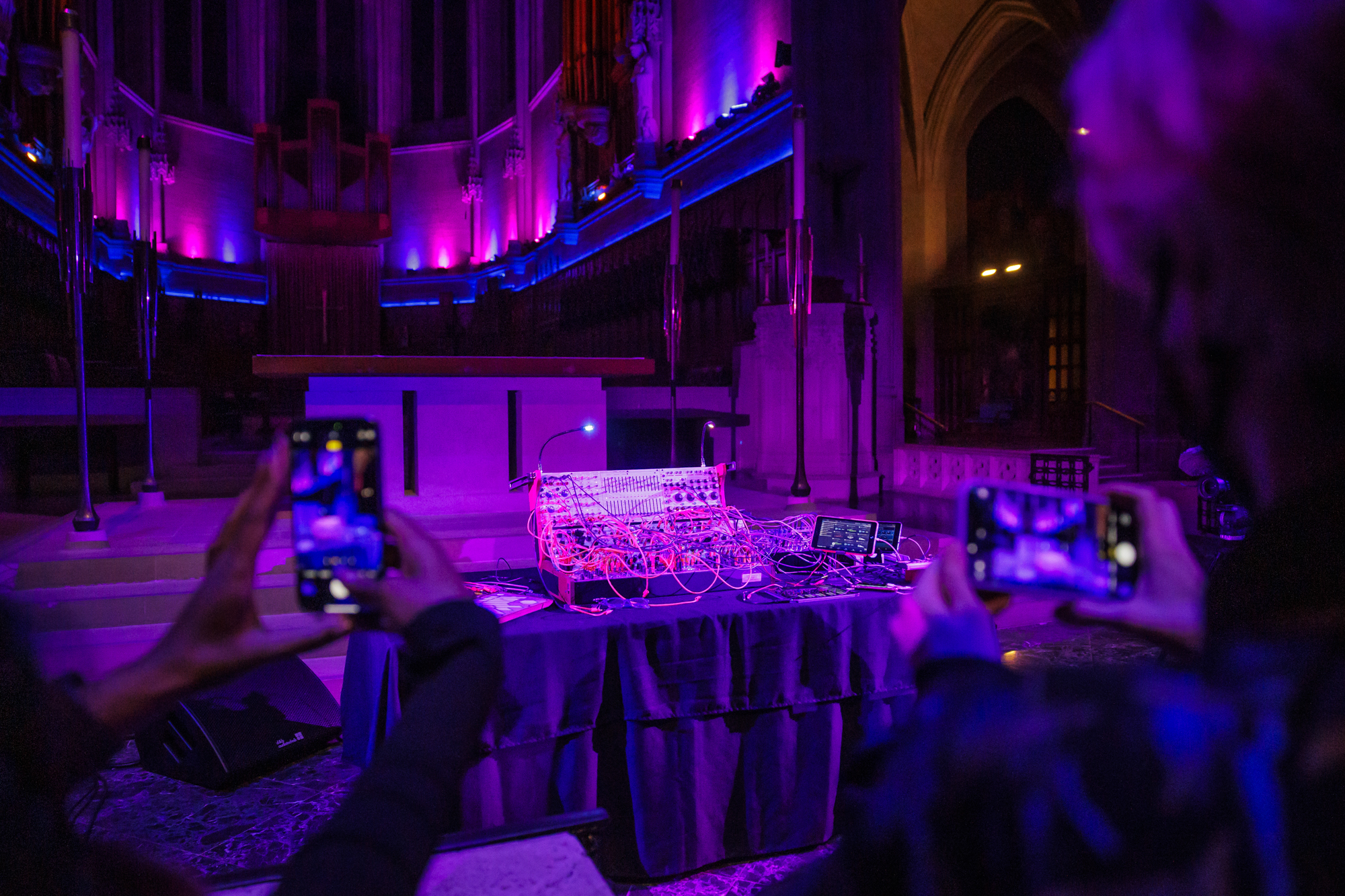Even before Suzanne Ciani played one note inside Grace Cathedral, her headlining show on Saturday night felt like an event. Outside, the full moon glistened behind the Top of the Mark, explosions of Lunar New Year fireworks reverberated from Chinatown below and a long line for her concert snaked down California Street on Nob Hill.
Ciani, the groundbreaking analog synth composer and Bay Area treasure, was here to celebrate the 40th anniversary of her debut studio album Seven Waves. As the sold-out crowd made of mostly 30- and 40-somethings filed into the cathedral — outfitted with quadraphonic speakers for the occasion — dozens took photos of the high ceilings, Ciani’s synthesizer and even the tech specs on the back of the speakers themselves.
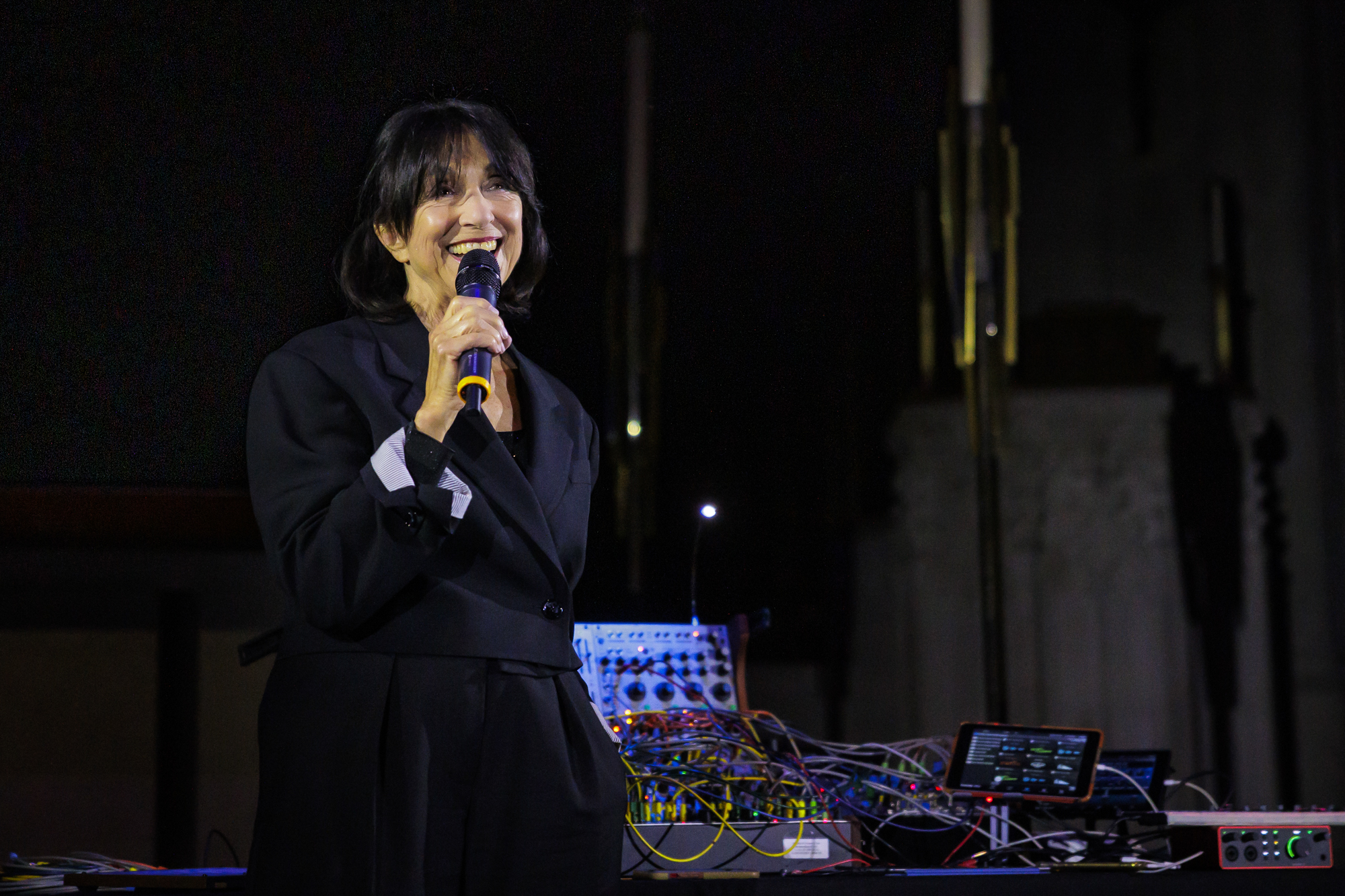
Ciani, who lives in Bolinas, welcomed her many friends in attendance, and introduced her Buchla 200e as “this instrument I’ve been playing for the past millions of years.” Then the 77-year-old icon sat down, started sending Seven Waves’ distinct ocean wave sounds across the cathedral walls — bathed in light patterns — and took the audience on a journey.
Instead of performing a straight re-creation of the album, Ciani introduced an array of themes from Seven Waves’ original multitracks, and over them hatched spontaneous compositions. Released in 1984, Seven Waves is full of wondrous melodies, deep bass often in counterpoint and arpeggios typical of the New Age era. (I hesitate to say it, but in my brain, it’s filed next to Ray Lynch’s Deep Breakfast.) On Saturday night, however, her improvised deconstructions turned it into an entirely new, eerie, invigorating work for 2024.
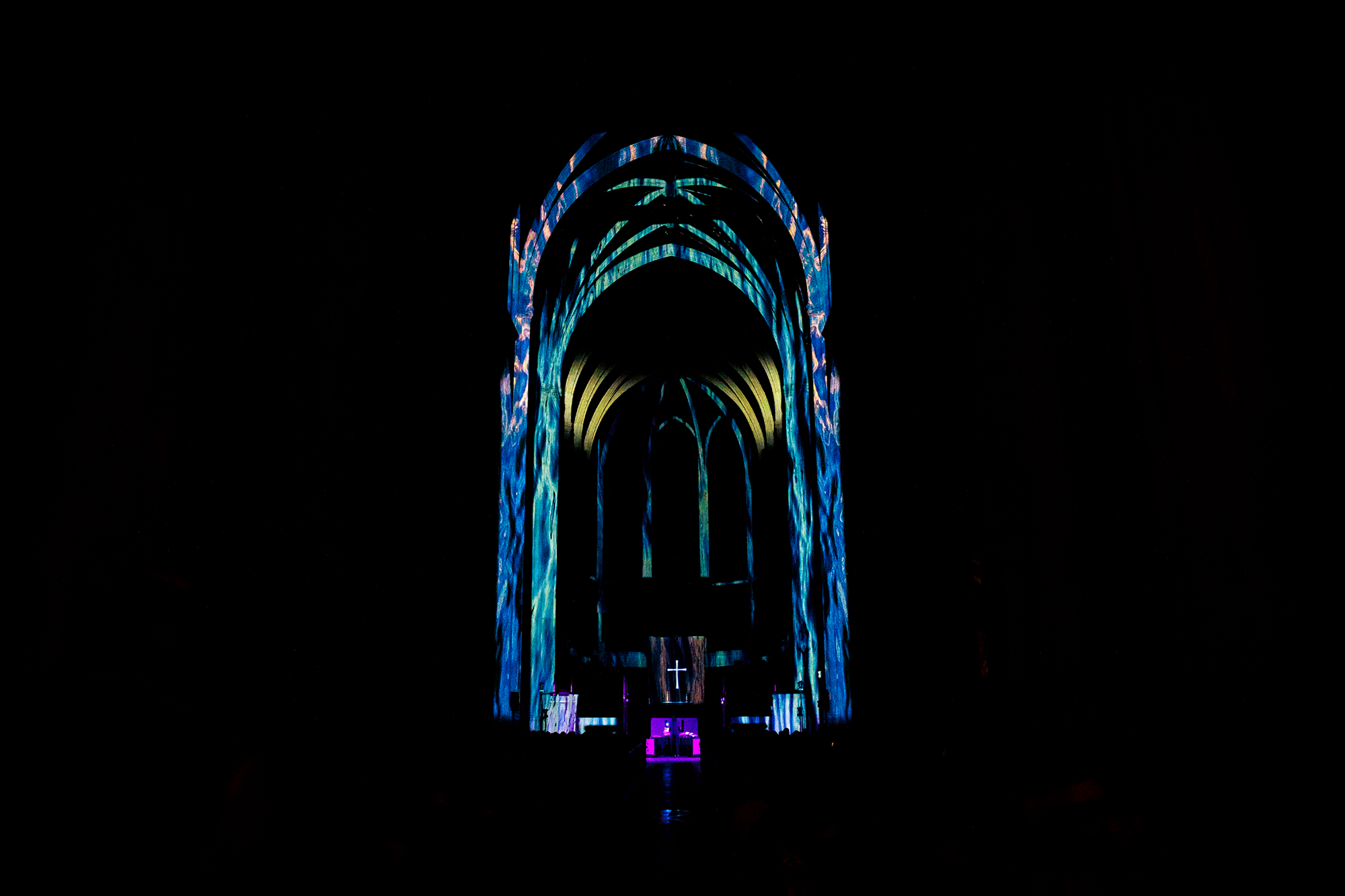
Immediately it became clear just how much Ciani is an influence on modern film composers like Atticus Ross and Cliff Martinez, as well as recent darkwave bands like Kavinsky or Com Truise. Even more in focus was Ciani’s command of dynamics. Soft passages stayed soft; no small feat considering Grace Cathedral’s famous seven-second delay, and she knew just when to drop a sharp bass stab to rattle the pews.
